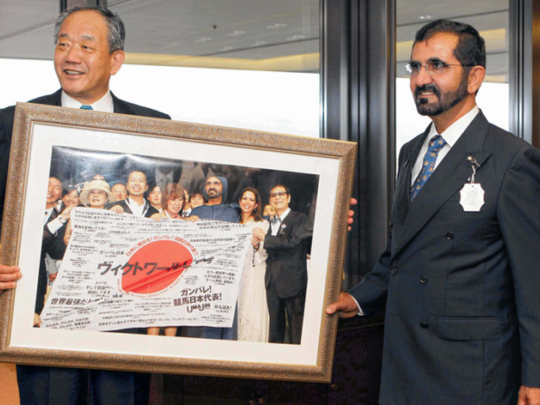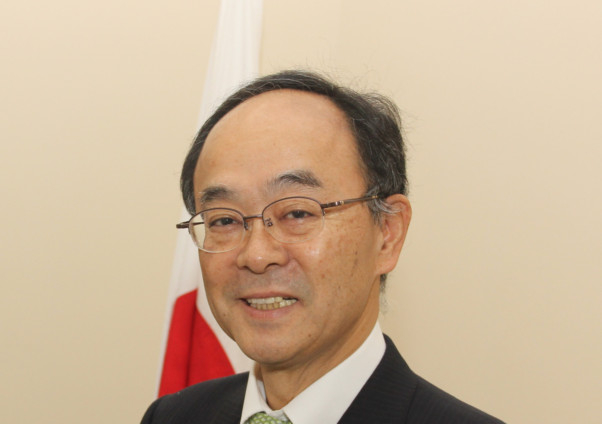
Over the 40 years since Japan and the UAE first established diplomatic ties in 1972, a mutually beneficial relationship has developed between the two nations. Two-way trade in 2012 clocked up to $53.1 billion (about Dh195 billion).
This is a 6 per cent increase over the $50.16 billion of the previous year, according to figures from the Japan External Trade Organisation (Jetro), a government-related organisation that promotes mutual trade and investment between Japan and the rest of the world.
Figures from the Abu Dhabi Department of Economic Development are similarly positive. Trade exchange between both countries saw a 15 per cent increase on year in the first half of last year to Dh100 billion.
Business between the two countries will further benefit from a double-taxation treaty agreed upon last fall, Yoshihiko Kamo, Japan’s Ambassador to the UAE, says in an interview with GN Focus.
“The signing will take place when we get ready to go ahead and I expect that to happen very soon,” he says. “It will improve the flow of investments between the two countries.”
Relations between the two nations are good, stable and built on mutual respect. Japan was one of the first nations to initiate bilateral relations with the UAE after its formation.
“We really admire the country for its incredible achievements over the past 40 years to become a great modern nation,” Kamo says. “I feel that the UAE also sees us in the same light.”
Energy pillar
Kamo says Japan depends heavily on petroleum imports from the UAE, adding that the country is the second-largest exporter of petroleum to the Japanese, after Saudi Arabia. Jetro figures indicate oil exports from the UAE to Japan during the first half of 2012 were valued at Dh83.06 billion, compared to Dh75.5 billion during the same period previous year.
Automobiles account for more than 40 per cent of exports from Japan to the UAE, followed by machinery, Kamo says. “Plant engineering is another area where we are quite active in the UAE along with the oil and gas industry. We export a lot of machinery to the UAE, particularly for water purification projects and power projects,” he says.
Cross investments between the two countries are equally important as well. “The UAE invests in Japan via portfolio investments, real estate and some equity as well. I do not follow the figures accurately, but I am certain that there is more room for us to expect investment from the UAE,” he adds.
Japanese organisations are doing their bit by easing investment and educating potential investors. Jetro, for example, offers foreign investors abundant assistance, including consultation and free temporary office space in major business areas across the country.
However, the relationship between the two countries is not only based on trade, export figures and statistics, as seen in 2011. “When we were hit by the great earthquake and tsunami and we lost nuclear power generation, we were really anxious to get an additional power source,” says Kamo. “We looked to the UAE for additional exports for LNG and it agreed. We are thankful for its immediate action to save our energy crisis. The UAE shares about 20 per cent of Japanese petroleum imports as well as a sizable share of LNG.”
Joint initiatives
With regards to tourism, the ambassador says the UAE saw more than 50,000 visitors from Japan in 2010. However, that figure declined in 2011 due to the earthquake, the tsunami and the subsequent nuclear accident. “Now, the amount of Japanese tourists is increasing once again. The opposite traffic, however, is much smaller in numbers,” says Kamo.
The two nations are now working together on several joint initiatives. In February this year, the Abu Dhabi Japan Economic Forum served as the backdrop for the signing of ten agreements and memoranda of understanding. Another interesting development is the fuel cell project between the UAE University and the Japan Cooperation Centre, Petroleum. “The project experiments with fuel cell power and sustainable energy in order to converge with the ordinary power grid. The target year is 2014,” says Kamo.
That should help fuel a strong relationship over the next 40 years.



